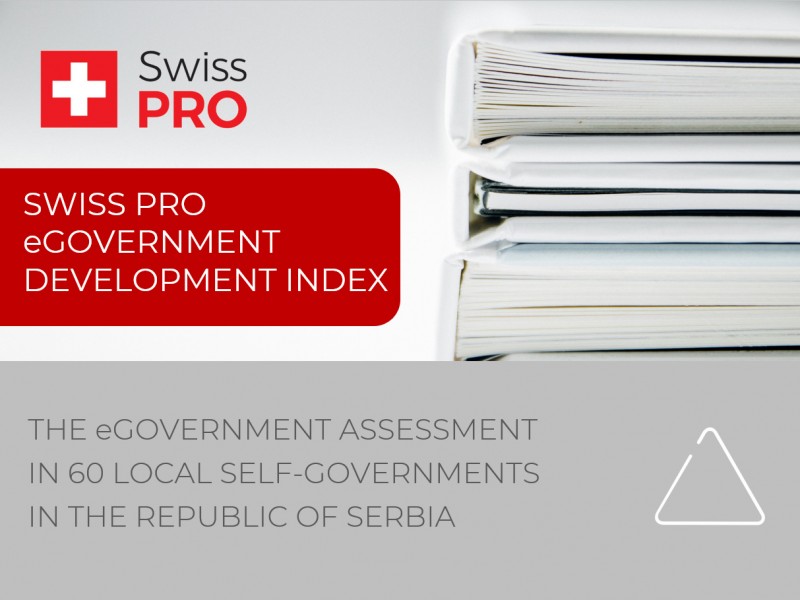News / Actualities
Progress in introduction of e-Government in Serbia; local self-governments still have a lot to do
-
Belgrade, 1 July 2019
In order to provide support to the local self-government units (LSUs) in introduction of e-Government over the coming period, the Swiss PRO Programme, supported by the Government of Switzerland, conducted a comprehensive assessment from August to December 2018 regarding the current state of e-Government and e-Services that LSUs provide to the citizens and businesses on a representative sample of 60 local self-government units in Serbia.
The assessment conducted by Development Consulting Group (DCG) from Belgrade observed three types of indicators related to provision of e-Services, capacity and readiness of LSUs to implement e-Services, computer literacy, perception and satisfaction of beneficiaries with the e-Government services.
The results of this unique assessment, since it involves both the providers and beneficiaries of e-Services, show great unevenness concerning the levels and quality of introduction and application of e-Government as well as provision of e-Services between different parts of the country.
The findings according to statistical regions indicate that e-Government is the most developed in Vojvodina, followed by Sumadija and West Serbia. East Serbia is, generally speaking, the region with the lowest degree of development of e-Government compared to the two previously mentioned. The best score for a LSU from Vojvodina belongs to Zrenjanin, with almost 68% of indicators fulfilled. The best result in the region of Sumadija and West Serbia was achieved by the city of Novi Pazar with nearly 60% of compliance with the set indicators which is only a few percentages more than the best ranked LSU in the region of South-East Serbia (Knjazevac, with 56.9%).
There is room for improvement in the area of access to e-Services at the e-Government portal since only 24 out of 60 LSUs (40%) posted the services at the e-Government Portal but only a small portion of those actually offer e-Services. The cities and municipalities of Loznica, Zrenjanin, Novi Pazar and Vrnjacka Banja, on the other hand, offer a large number of completely feasible e-Services, such as, inter alia: registry services, issuing of personal documents, submission of requests for issuing certificates and other documents, insight into tax accounts, reporting municipal problems, enrolment of children into kindergartens, e-Baby etc.
Regarding the use of e-ZUP (electronic administrative procedure), all LSUs fulfilled the formal requirements for the use of e-ZUP: they appointed two administrators and obtained the certificates for all employees involved in any of the procedures. Vrnjacka Banja is an example of good practice since it is the only one of LSUs that uses e-ZUP for internal exchange of data and documents.
Half of the assessed LSUs, even 51,7%, have obsolete websites that are not up to standards, with poor structure and design. Therefore, LSUs will have a lot to do in the next period in order to improve their websites.
Likewise, the assessment showed that LSUs are faced with two great challenges pertaining to e-Government on a daily basis: staffing and financial challenges.
The Programme will use the results and findings of the assessment to prepare the public call for project proposals and try to respond to the needs of the LSUs and support them in further development of e-Services and introduction of e-Government.
Public call for the support to LSUs in strengthening capacity for improvement of e-Government will be published in July 2019. Swiss PRO Programme will support up to 40 LSUs in improving technical and technological basis for advancement of e-Government and provision of e-Services to the citizens through grants for acquiring equipment and provision of technical support for development and setting up internal functional management structure. The public call will be aiming at towns and municipalities within the Programme’s area of responsibility covering two regions Sumadija and West Serbia and South and East Serbia.
A summary of conducted assessment with key findings is available at this link.







